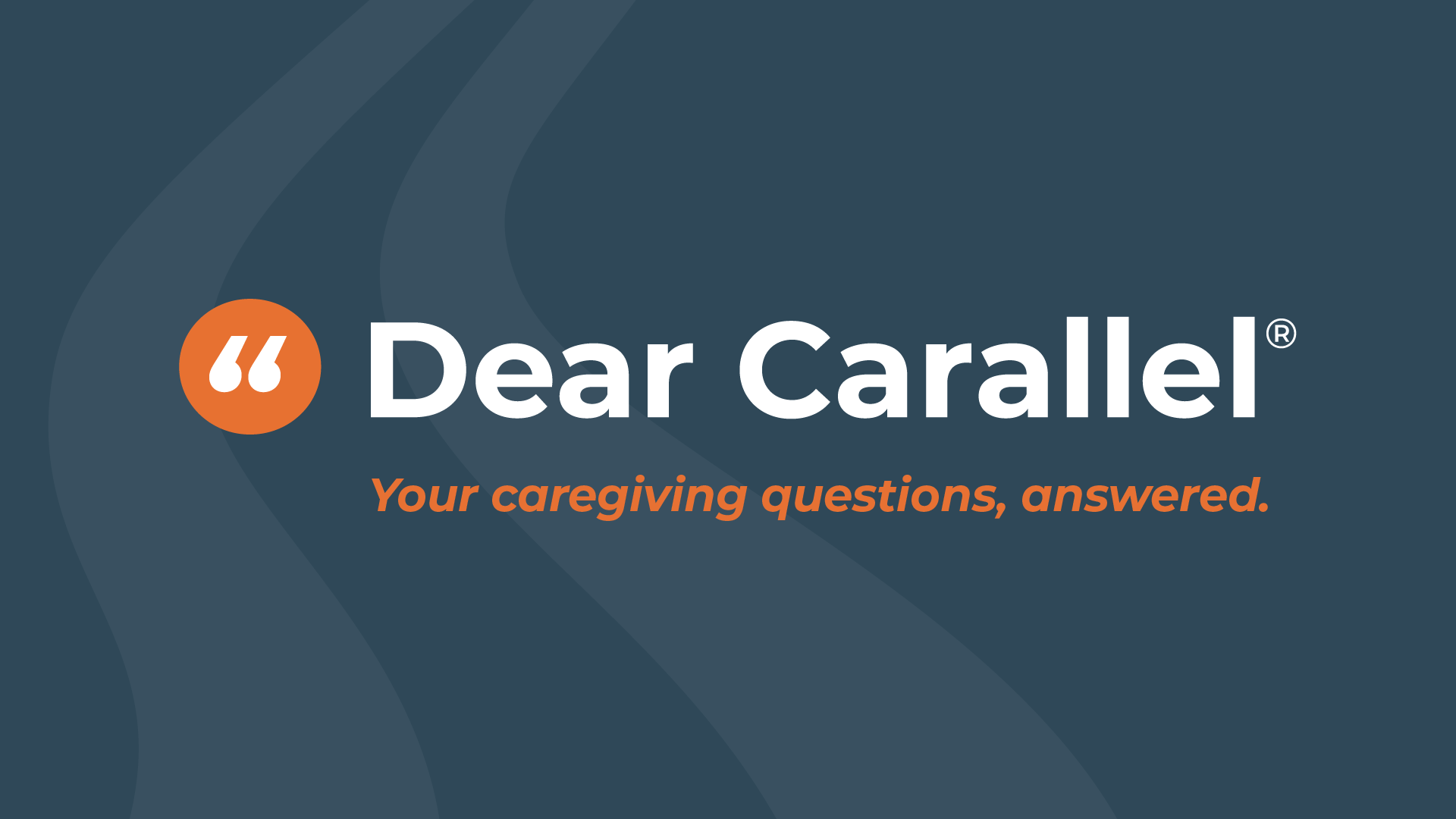Caregiver Question | 03/21/24
She’s accusing me of stealing her pocketbook, her money, and her lipstick.

DEAR CARALLEL: I moved into my mother’s home four and a half years ago when it was too much for her to be living on her own. I was not quite sure what was going on with her at the time, I just thought she was getting older. Long story short, it turned out to be the beginning of Alzheimer’s Disease and we’ve been living together ever since.
It’s a lot of work for me and it’s sad at times to see what the disease is doing to her, but my mother and I have made it work. We have fun and we try to smile a lot.
The only thing is that lately she’s been accusing me of stealing her pocketbook, her money, and her lipstick. She accuses me and is mean about it. It hurts my feelings and no matter how many times I tell her that I haven’t taken any of those things, she seems to get even more worked up.
It makes me want to scream! How can I tell her that I didn’t take her stuff and keep this from happening in the future? — Pam in Wilmington, NC
DEAR PAM: I smiled when I read the part about you and your mother “having fun and smiling a lot.” As for the accusations, I’m sending you a big virtual hug.
I unfortunately can’t give you any definitive way to keep this from happening in the future. It’s part of her disease progression.
The changes in your mother’s brain give her a different version of reality; one where she believes someone has taken something that she can’t find or doesn’t see. Hopefully the accusations are just a phase and will become less frequent or stop as time goes on.
In the meantime, here are a few tips that could help you handle the situation when it comes up again.
Remember it’s the disease, not your mother
It’s natural to feel hurt when we’re accused of doing something that we did not, or would not ever, do. Of course we take it personally.
But in this case, it could help to remember that if your mother was not living with Alzheimer’s, she would not be accusing you of taking her things. Her accusations truly are a result of her disease.
Doing this won’t make it stop but it could help you guard against taking it personally, which in turn will help you keep calm in these situations.
So remember, it’s not your mother. It’s the disease.
Lean into her reality
So long as it’s safe to do so, leaning into your mother’s reality will help you validate her feelings. Try to keep in mind that she believes whatever she’s accusing you of, so correcting her or arguing with her usually won’t be successful.
Yet giving her the space and attention to express whatever she’s feeling, and sympathizing with her about it, can go a long way towards diffusing the situation and preventing further agitation.
Distract
Once you’ve validated how your mother is feeling, it’s worth trying to distract her with something she enjoys.
Perhaps her favorite TV show, a snack she enjoys, or an activity you know she likes could help get your mother’s mind off of the theft.
Have backups
Depending on how frequently it’s happening and whether or not the item in question can be found, it could be worth having backups.
Keep a spare purse, some extra lipstick, and/or a few dollars in cash to bring out when you’re helping your mother find the missing item.
Talk to others who get it
What you’re experiencing with your mother is sadly not uncommon. If you don’t already have a support group that you can lean on, this may be a reason in and of itself to find one.
If you find a dementia support group, I’d be surprised if at least one other person you meet there has not had a similar experience.
And if you’re not sure how to find one, you can respond to this email and our Care Advocates can help you do that. Or your doctor, or your local Area Agency on Aging (find your local office here), should be able to provide recommendations too.
✨
I hope this helped and wish you and your mother the best, Pam!
–Jennifer, Carallel Care Advocate
The latest from Carallel

Caregiver Journey Webinar
A Caregiver Conversation by Carallel: Helping Children Adjust When a Loved One Moves In
We dive into the practical realities of moving the person you're caring for into your home - and offer simple tips for helping children adjust....

Blog
The ‘Invisible Second Patient’: Understanding the Role of Dementia Caregivers
There are 16 million Americans caring for a loved one with Alzheimer’s disease or a related dementia today. Despite the group’s sheer size, they...
